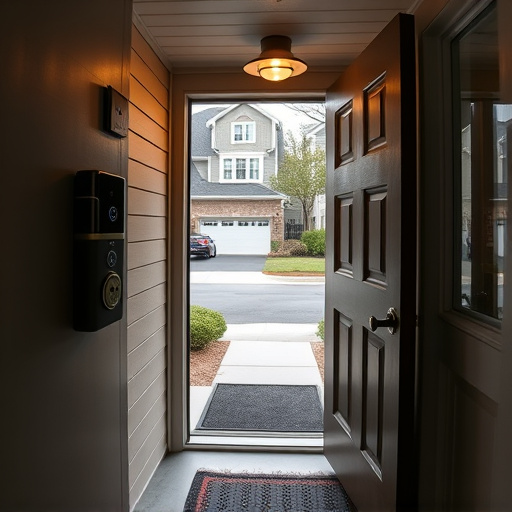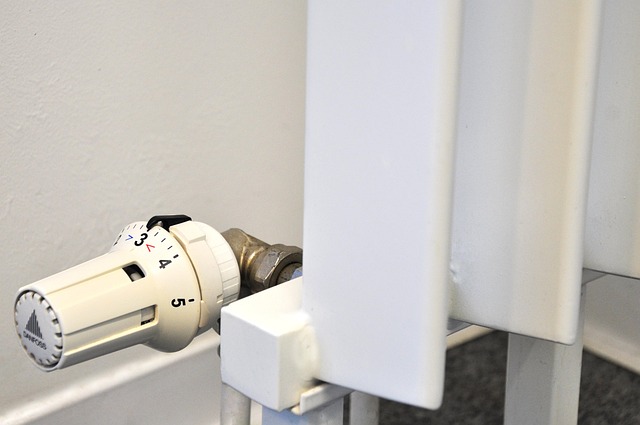In Eugene, Oregon, the growing popularity of electric vehicles (EVs) highlights the need for accessible and affordable charging solutions. While installation costs and limited public options pose barriers, community initiatives are introducing budget-friendly charging across public spaces, residential areas, and transit routes. This trend, combined with efficient EV charger repair services, is transforming sustainable transportation in the city, making EV ownership more feasible for diverse income levels. Successful programs in cities like Portland and San Francisco offer models for Eugene to expand EV access, reduce costs, and integrate innovative technologies into its EV charging infrastructure.
“In the rapidly growing electric vehicle (EV) market, accessible and affordable charging solutions are vital for Eugene, Oregon’s sustainable transportation future. This article explores the pressing need for budget-friendly EV charging infrastructure, analyzing its current landscape and benefits for residents. We delve into the cost-effectiveness of public versus private chargers, present successful case studies, and discuss innovative prospects in EV charger repair and maintenance. By addressing these aspects, Eugene can lead the way in making electric mobility more affordable and convenient.”
- Understanding the Need for Affordable EV Charging Solutions in Eugene, OR
- The Current Landscape of Electric Vehicle (EV) Charging Infrastructure
- Benefits of Accessible and Inexpensive EV Charging for Residents
- Exploring Cost-Effective Options: Public vs Private EV Chargers
- Case Studies: Successful Implementation of Budget-Friendly EV Charging Programs
- Future Prospects and Innovations in Affordable EV Charger Repair and Maintenance
Understanding the Need for Affordable EV Charging Solutions in Eugene, OR

In Eugene, Oregon, the growing adoption of electric vehicles (EVs) has highlighted a critical need for accessible and affordable EV charging solutions. As more residents and commuters switch to EVs for their daily needs, the demand for charging infrastructure has increased exponentially. However, the current landscape often presents challenges in terms of cost and convenience, especially when compared to traditional fueling options. Many drivers face high installation costs for home chargers or limited and costly public charging stations, creating a barrier to entry for EV ownership.
This situation is further complicated by the fact that EV charger repair and maintenance can be expensive, adding another layer of financial strain on early EV adopters. To address these concerns, there is a pressing need for budget-friendly options that make EV ownership more feasible and attractive to a broader audience. Implementing affordable charging solutions in public spaces, such as city parks, shopping centers, and along major transportation routes, can significantly contribute to the expansion of the EV market in Eugene.
The Current Landscape of Electric Vehicle (EV) Charging Infrastructure

In Eugene, Oregon, the current landscape of electric vehicle (EV) charging infrastructure is evolving rapidly as more drivers opt for sustainable transportation options. While the city has seen an uptick in EV adoption, there’s a growing need for affordable and accessible charging solutions to support this shift. Traditional public charging stations, often owned by private companies, can be expensive, leaving many potential EV owners hesitant to make the switch due to the cost of charging. This is where community-driven and affordable EV charging options come into play, addressing a crucial gap in the market.
Local initiatives are focusing on installing more accessible and less costly charging stations in public spaces, residential areas, and even along popular transit routes. These efforts aim to make EV ownership more feasible for all income levels. Moreover, there’s a growing interest in ev charger repair services to ensure these stations remain functional and efficient. Prompt repairs and regular maintenance are essential to keep the charging infrastructure robust, especially as the number of EVs on the road increases. This trend towards decentralized and cost-effective charging solutions promises to revolutionize how Eugeneans embrace electric vehicles.
Benefits of Accessible and Inexpensive EV Charging for Residents

Accessible and inexpensive Electric Vehicle (EV) charging solutions offer a multitude of benefits for residents in Eugene, OR. One of the primary advantages is the convenience it provides, allowing drivers to recharge their vehicles easily at home or in public spaces, eliminating the hassle of long waits at charging stations. This accessibility promotes EV adoption, encouraging more people to switch to electric transportation without the fear of range anxiety.
Moreover, affordable EV charging supports local economies by reducing the cost of owning an EV. With proper infrastructure in place, residents can save on fuel expenses and potentially reduce their carbon footprint. Efficient ev charger repair services also play a crucial role in maintaining these systems, ensuring they function optimally and reliably, which is essential for the sustainability and convenience of EV ownership.
Exploring Cost-Effective Options: Public vs Private EV Chargers
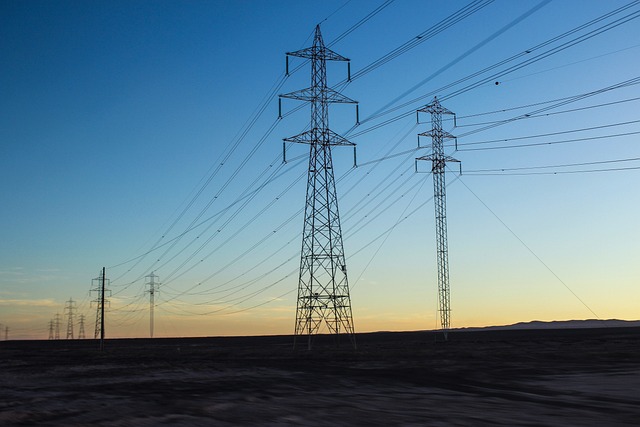
In Eugene, Oregon, exploring cost-effective electric vehicle (EV) charging options is a smart move for both individuals and businesses looking to go green. The choice between public and private EV chargers depends on various factors, including convenience, budget, and usage patterns. Public EV chargers, often located in parking lots, shopping centers, or along highways, are convenient for occasional users who may not have access to home charging. However, these stations usually come at a higher cost per kilowatt-hour (kWh) compared to private chargers.
On the other hand, private EV charger installations offer significant savings over time. Homeowners and businesses can install chargers that are billed directly through their electricity provider, often at lower rates. Moreover, with proper ev charger repair and maintenance, these private systems ensure reliable and cost-efficient charging for daily users. This option is particularly beneficial for those who charge regularly, as it eliminates the need to pay for each session at public stations.
Case Studies: Successful Implementation of Budget-Friendly EV Charging Programs
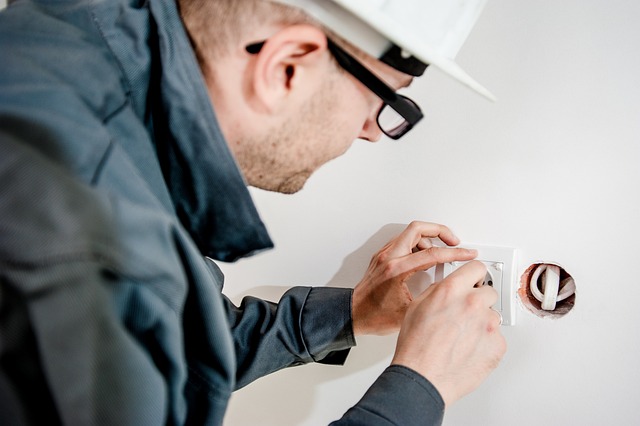
In the rapidly evolving landscape of electric vehicle (EV) adoption, several cities and municipalities across the US have successfully implemented budget-friendly EV charging programs. These initiatives showcase practical solutions to make EV ownership more accessible and affordable for residents in diverse urban settings. For instance, Portland, Oregon, has pioneered community-based charging stations, leveraging public spaces such as parks and municipal lots to install low-cost charging infrastructure. This approach not only expands access to EVs but also fosters a sense of communal ownership and sustainability.
Another notable case study is San Francisco’s pilot program that integrates EV charging into existing city infrastructure. By partnering with local businesses and utilizing underutilized parking spaces, the city has deployed numerous fast-charging stations at strategic locations throughout the urban core. This innovative strategy not only addresses the range anxiety often associated with early EV adopters but also facilitates smoother traffic flow by reducing the time required for charging. These successful implementations highlight the potential for cost-effective solutions to EV charger repair and maintenance, ultimately contributing to a more robust and inclusive network of electric vehicle charging options in Eugene, OR, and beyond.
Future Prospects and Innovations in Affordable EV Charger Repair and Maintenance
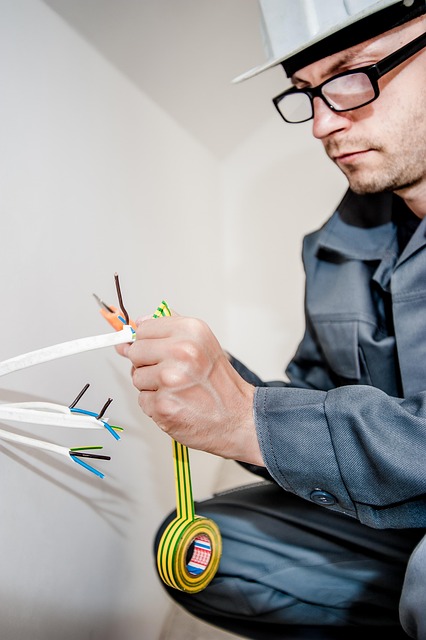
As the electric vehicle (EV) market continues to grow, so does the demand for affordable and reliable charging solutions. Future prospects in EV charger repair and maintenance focus on several innovative directions. One notable trend is the development of smart chargers equipped with diagnostic capabilities, allowing for remote monitoring and troubleshooting, thereby reducing the need for on-site repairs. Additionally, advancements in materials science could lead to longer-lasting charger components, minimizing maintenance needs and associated costs.
The integration of renewable energy sources, such as solar panels, into charging infrastructure is another promising area. This approach not only reduces the overall environmental impact but also offers economic benefits by enabling off-grid charging and potentially lowering maintenance expenses. Furthermore, the rise of shared mobility and fleet services presents opportunities for centralized charger management, where regular maintenance can be optimized to serve a larger number of users, ultimately contributing to more affordable EV ownership and operation in Eugene, OR, and beyond.


